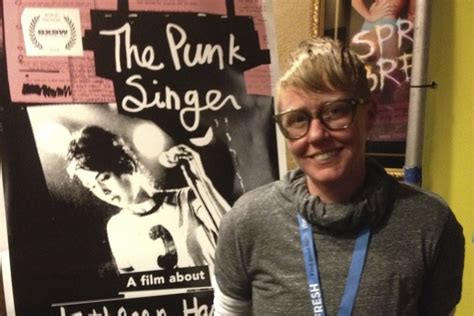A Quote by Kate DiCamillo
There is no right or wrong way to tell a story. You have to find your own way. You can get your idea from listening, looking, or imagining. Stories are everywhere. All you have to do is pay attention.
Related Quotes
I don't think an actor needs to necessarily go through his things to do his job. I think it's way more important to imagine. And then, when you're imagining, your experiences, your images and your own personal things will show up, but you keep imagining. You don't get stuck in your own personal things, otherwise you are telling your story in every character, and that's not interesting for anybody.
You do not have to have money to attract money, but you cannot feel poor and attract money. The key is, you have to find ways of improving the way you feel from right where you stand before things can begin to change: By softening your attention to the things that are going wrong, and by beginning to tell stories that lean more in the direction of what you want instead of in the direction of what you have got, your vibration will shift; your point of attraction will shift - and you will get different results.
The best time to tell your story is when you have to tell your story. When it's not really a choice. But then, when you get that first, messy, complicated version down, you have to read it over and be very tough on yourself and ask, 'Well what's the story here?' If you're lucky enough to have someone you trust looking over your shoulder, he or she can help you if [you] lack perspective on your own story.
If your skin is crawling, pay attention. If something doesn’t feel right, pay attention. If the hairs on the back of your neck prickle, if your gut clenches up, if a wave of wrongness washes over you, if your heart starts beating faster, pay, pay, pay attention. Do not second-guess yourself or rationalize anything that impedes your safety. Our instincts are the animal inside of our humanness, warning us of danger.
I think that the way that I write stories is by instinct. You have some basic ideas - a character, or an image, or a situation that sounds compelling - and then you just feel your way around until you find the edges of your story. It's like going into a dark room... you stumble around until you find the walls and then inch your way to the light switch.
I keep trying to find ways to shift the viewer's attention away from the object they are looking at and toward their own perceptual process in relation to that object. The question for me always is: how can I make you aware of your own activity of looking, instead of losing your attention to thoughts about what it is that you are looking at?
I noticed you the first week. Not just because of how pretty you are, though of course, that played into it. It was the way you lean onto your elbows when you 're listening in class, when something catches your interest. And when you laugh, it's never to get attention, it's just-laughter. The way you obssevively tuck your hair behind your ear on the left side, but let the right side fall down like a screen. And when you 're bored, you tap your foot soundlessly and move your fingers on the desktop like you 're playing an instrument. I wanted to sketch you.
I know what God did for me. I know that He is my way out and my way in. He's my way out of all this havoc and my way into paradise. He suffered for me and for everybody listening. God loves us so much. He tried a lot of things to get our attention. He tried a lot of things to get us back to Him. So He said, "I'll tell you what. I'm going to make it real simple for you. I'm going to send my Son. He's going to take on all your iniquities and all your sins. He's gonna die in your place so you can have everlasting life. All you've got to do is accept that.
Find your own Calcutta. Find the sick, the suffering and the lonely right there where you are in your own homes and in your own families, in your workplaces and in your schools. You can find Calcutta all over the world, if you have the eyes to see. Everywhere, wherever you go, you find people who are unwanted, unloved, uncared for, just rejected by society completely forgotten, completely left alone.



































